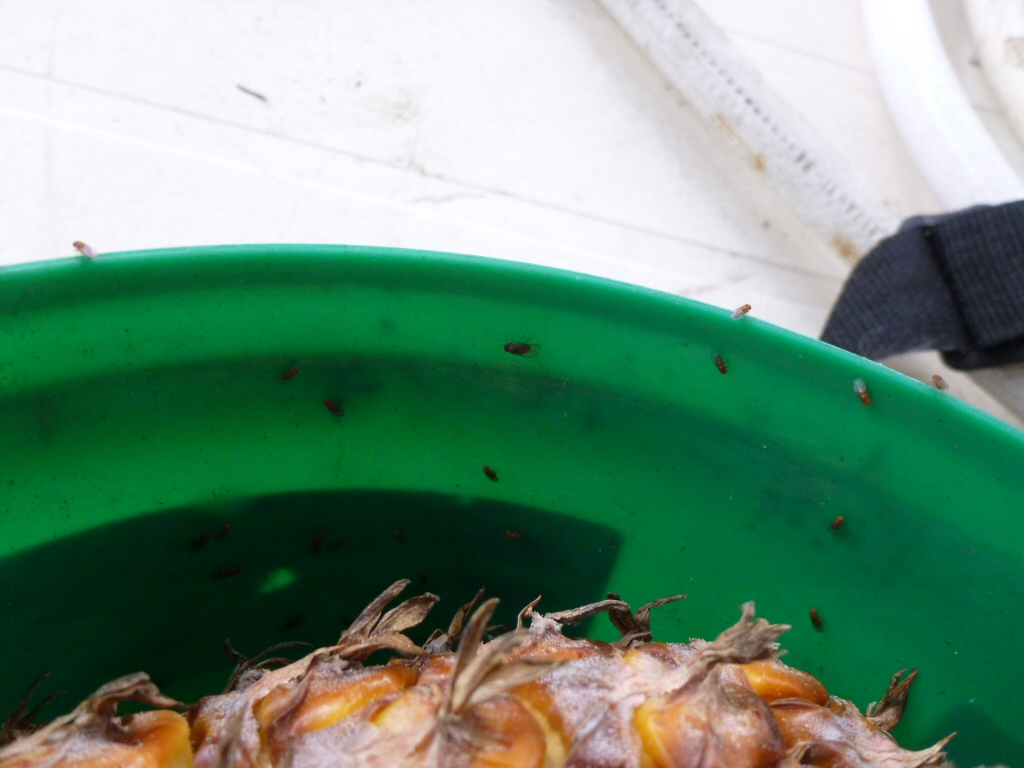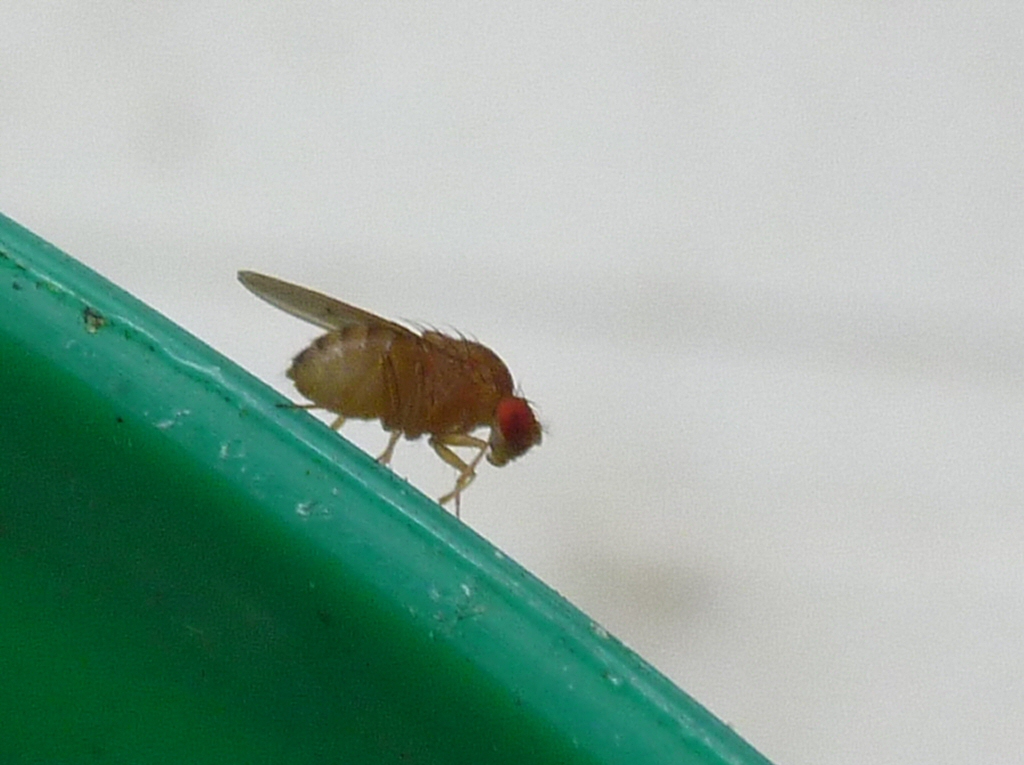What are those little flies around the compost bucket?
Do you sometimes reach a point with your kitchen compost bucket where you experience a mass of little flies taking off when you disturb the bucket? Chances are you have acquainted yourself with vinegar flies (Drosophila melanogaster).
These very small flies with bright red eyes and yellow brown bodies feed on rotting fruit and vegetable matter and are not to be confused with Queensland Fruit Fly, a common and nasty pest of fresh fruit, which has a much darker almost black body. It is important to understand the way this insect lives to keep it under control as it can be very annoying if a large population builds up.
Vinegar flies are not a problem for your fruit and vegetable garden as they feed mainly on rotting rather than healthy fruit tissue. They can become a nuisance, however, if they breed up to annoying proportions as sometimes happens if you leave your compost bucket alone and uncovered for more than a few days. The reason for this is that vinegar flies have an incredibly rapid lifespan and go from egg to adult in less than two weeks. For this reason they have also been extensively used by geneticists to study patterns of inheritance and so much is known about many facets of these fascinating flies. The amazing red eyes are made up of hundreds of individual units that produce vision for the fly.
What to do about vinegar flies?
Well, my suggestion is to keep your compost in a bucket with a snap on lid and be vigilant about your fresh fruit bowl in the kitchen. I find it best to keep fruit out of the fridge so that it has a bit of extra time to ripen properly, particularly if I am buying fruit in rather than home grown produce. Once your fruit is ripe it can be put into the fridge to stop any infestation from vinegar flies or fungi.
Another precaution is make sure that rotting fruit in your compost heap is completely covered so that the female vinegar fly has nowhere to lay her eggs. Burying it within the heap is a perfect solution.
A third option is to freeze any fruit leftovers before putting them into your compost heap, as this helps break down the cell walls and speed up the decomposition process. Another way to speed up the breaking down is to place fruit destined for the compost into a sealed plastic bag and put into a sunny spot to heat up. Black plastic will absorb even more heat!


